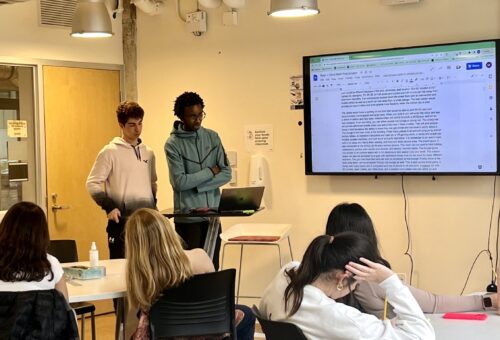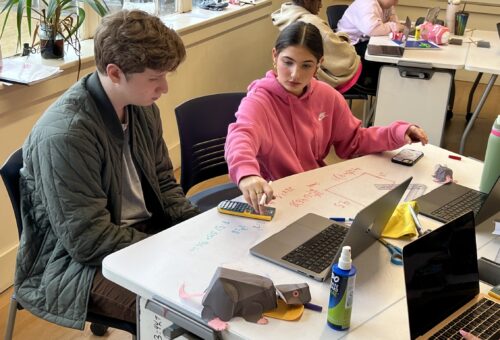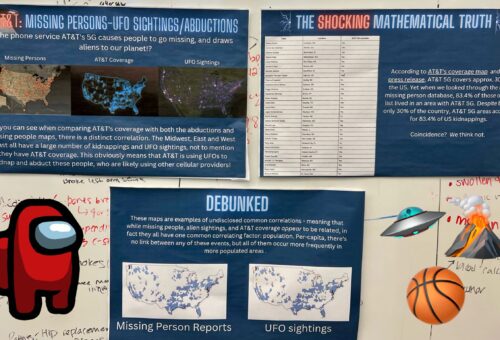Upper School Mathematics
The Mathematics Department offers a sequence of courses by which students can gain an understanding of the style and content of mathematics, become adept in its fundamental skills, develop an understanding of the analytic power of mathematics through problem solving, and begin to explore the subject for the beauty of its abstractions and the variety of its applications. Confidence building and minimization of fears are conscious goals. While technology is used in many situations, students are also asked to do work by hand to ensure a deep understanding; our emphasis is usually on “why,” instead of simply “how.”
Our aim is to develop creative, fresh, innovative, deep-thinking—not rote doing. Lessons center around multidimensional, open, visual, contextualized, and compelling tasks that encourage student exploration, creativity, questioning, pondering, and discussion. We believe mistakes are valuable, that everyone can learn math to the highest levels, and provide regular feedback to inform learning and emphasize individual growth.
Requirements
Three years of math courses—30 credits—are required for graduation but students are encouraged to take Calculus before graduating. Most students also explore other branches of mathematics through the range of one-term electives that are offered. A student may elect to do an independent study in an area of particular interest where a course is not offered.
Honors
Honors placements by Departmental recommendation only.
Math FAQs
Rather than solely focusing on one element of math (i.e., algebra, geometry, etc.) in a given year, elements of all the math disciplines are integrated at each grade level. This also means we are able to incorporate data science into the curriculum.
Integrated Math courses can be defined by themes and applications, putting focus on context and critical thinking.
Integrating our courses provides even more opportunities for:
- Authentic learning and assessment
- Students to see themselves in the curriculum
- Students do the “sense-making” and develop as creators of mathematics
- Students to use authentic mathematics to analyze sociopolitical, cultural, and global issues.
What this looks like in practice:

Ninth-graders are assessed throughout their first 12-week term of math where they are provided with choices for tasks at varying levels of complexity. Teachers gather evidence and conference with students regularly to determine the most appropriate level of math for each student. Separate honors-level sections are offered beginning with the second term in 9th grade.
The Beaver Upper School schedule builds in time for students to work with teachers individually or in small groups during and outside of class. Teachers provide extra support and enrichment during all parts of the day.


